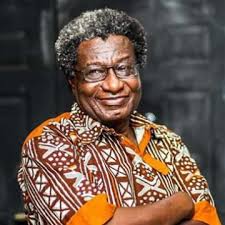In an exclusive press interview with EKUNKONYE JUNIOR recently in his office, the Director, International Institute of Journalism (IIJ), DR. EMMAN SHEHU says that lack of compensation after revocation of the institute’s Certificate of Occupancy (C of O) by the authority hinders infrastructural development in IIJ, leaving us without essential facilities like hostels, laboratories, studios, and large halls that could generate revenue.
Among others, he boasts that the institute’s Post Graduate Diploma (PGD) course contents surpasses first degree in conventional universities.
Read the excerpts;
There is this belief in some quarters that a holder of Post Graduate Diploma (PGD) from your institute, IIJ can’t proceed to pursue a master’s degree in conventional university. Can you clear the air?
Yes, Our PGD holders can pursue a master’s degree in related fields at other universities. However, it’s essential to note that the master’s program must align with their PGD specialization. We’ve had instances where students faced challenges because they wanted to pursue a master’s in a completely different field from their PGD. For example, someone with a PGD in Journalism can’t directly pursue a master’s in an unrelated field. But when there’s alignment, our graduates have gone on to excel in postgraduate studies, including master’s and doctorate programs, both locally and internationally. In fact, one of our recent graduates topped his master’s class in the UK and is now pursuing his PhD.
What are the major challenges facing the International Institute of Journalism (IIJ)?
The challenges are significant, with funding being the primary issue, as is common with many Nigerian institutions. Another major challenge stems from our history. IIJ was initially allocated land in Area 11, Garki, Abuja, courtesy of the Nigerian Union of Journalists (NUJ) and the International Organization of Journalists (IOJ). However, a change in administration led to the revocation of our C of O without compensation. This forced us to relocate multiple times, from Area 11 to Mabushi and eventually back to Area 11. The lack of compensation has hindered our infrastructural development, leaving us without essential facilities like hostels, laboratories, studios, and large halls that could generate revenue. Our current facilities are inadequate, and we struggle to raise funds to develop our infrastructure.
Can senators contribute to the growth of IIJ?
Absolutely. As the fourth estate of the realm, journalism plays a critical role in society, and building the capacity of practitioners is essential. Any support from senators, particularly in terms of funding, would be beneficial for the common good.
Specifically, can senators introduce legislation to support IIJ?
Yes, We’d welcome legislation that sets standards for journalism practice, ensuring that only qualified professionals are recognized. This would encourage more people to seek formal training and certification, ultimately boosting our revenue. It would also enable us to work with media houses to ensure that practitioners meet the required standards, just like what is obtainable in law and other professions.
What’s the way forward for IIJ, considering its importance?
The way forward for IIJ is clear. As the training wing of the Nigerian Union of Journalists (NUJ), it needs visionary leadership and commitment from the NUJ to thrive. Stakeholder support is also crucial for IIJ to achieve its vision. Capacity building is essential for any profession, and journalism is no exception. Given its contributions to Nigerian journalism since the Babangida administration, IIJ’s importance cannot be overstated. With the right support, IIJ can continue to play a vital role in shaping the future of journalism in Nigeria.
Can you highlight some of IIJ’s achievements?
IIJ has produced notable alumni, including Senator Izunaso, who is a prominent figure in the country’s lawmaking body. Many other graduates have made significant contributions in politics, journalism, and other fields. IIJ’s impact on Nigerian journalism is undeniable, and its legacy continues to inspire new generations of journalists.
Can the IIJ compete favorably with conventional universities, especially in terms of the courses offered?
Absolutely. Even before the National Universities Commission (NUC) unbundled the Mass Communication program, our Post Graduate Diploma (PGD) courses were of exceptionally high quality, surpassing the standards of first degrees from conventional universities. Our PGD program is designed to be preparatory for advanced graduate work, and many of our students have successfully applied the knowledge gained from our program to their full-time graduate studies in Journalism and Public Relations. The NUC’s unbundling of the Mass Communication curriculum has further enhanced our ability to diversify and improve our offerings, ensuring we stay up-to-date and relevant.
There’s been skepticism about IIJ’s affiliation with the University of Maiduguri. Can you clarify this?
I’d like to assure you that IIJ is indeed affiliated with the University of Maiduguri. This affiliation was established in 2006, and we have all the necessary documentation to prove it. In fact, we’ve previously provided evidence of this affiliation to Blueprint newspaper, which published a disclaimer after some inaccuracies were reported. I’m happy to share the relevant documents and publication with you to confirm the affiliation, which remains valid to this day.



